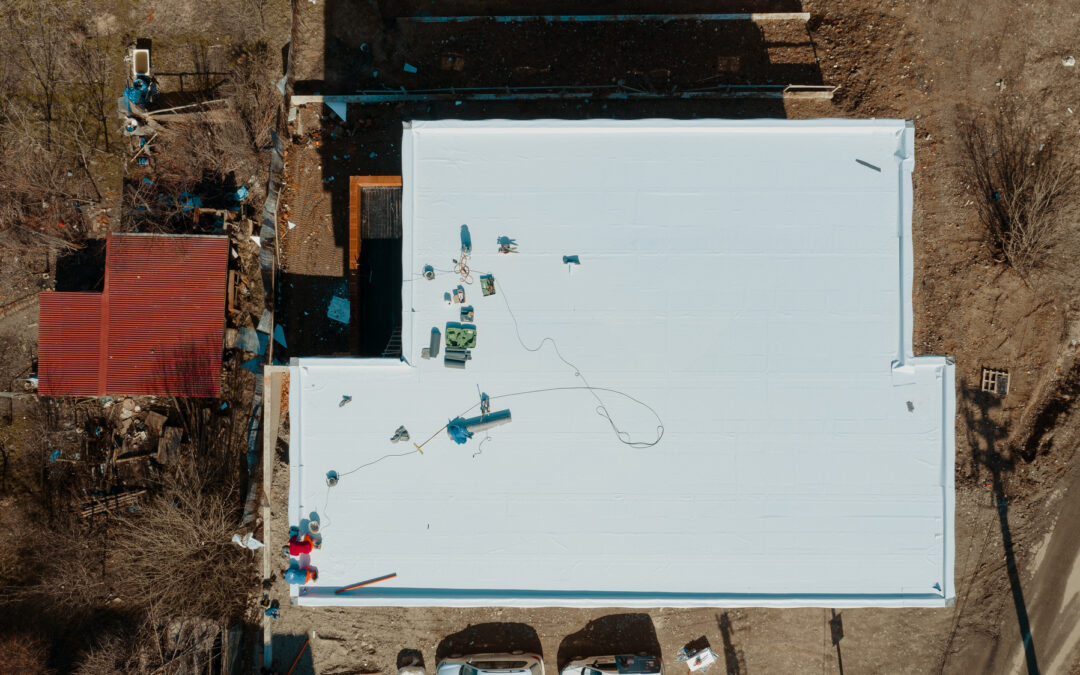When it comes to commercial roofs, everything can feel like a bit of a mystery, which some business owners might find hard to solve. But luckily you’re not alone. Business owners in Port Orchard often find themselves scratching their heads over roofing questions. This guide is here to clear the fog surrounding commercial roofing and provide you with the essentials you need to understand regarding some of the more commonly asked questions. By the end of this post, you’ll know what questions to ask when replacing a commercial roof and have the confidence to make informed decisions.
Understanding the Basics of Commercial Roofing
Commercial roofs aren’t just larger versions of residential ones. They come with their own quirks and complexities. Understanding these can save you both time and money.
First, commercial roofs often use different materials than residential roofs. While homes might have shingles, commercial properties often use materials like TPO, EPDM, or modified bitumen. Each material has its pros and cons, depending on the climate and building structure.
Second, the slope—or lack thereof—is a major difference. Many commercial roofs are flat or have a very low slope, which requires special attention to drainage. Without proper drainage, water can pool, leading to leaks and damage over time. Knowing this helps in planning maintenance and inspections.
Lastly, the installation process varies significantly. Commercial roofs need to withstand more stress, from HVAC systems to foot traffic. This means more robust materials and techniques are required during installation. Understanding this adds value when considering the lifespan and durability of your roof.
How Often Should a Commercial Roof be Inspected?
Regular inspections are crucial to maintaining the health of your commercial roof. But how often should you schedule them? This is a common query among business owners.
It’s recommended to have your commercial roof inspected at least twice a year. Ideally, schedule inspections in the spring and fall. This timing helps identify any damage caused by harsh winter conditions or summer heat before they become significant issues.
In addition to bi-annual inspections, after major weather events is another key moment to check your roof. Storms, heavy winds, or hail can cause unseen damage that, if left unaddressed, could escalate into costly repairs.
During inspections, professionals will look for signs of wear and tear, potential leaks, and check for any necessary maintenance tasks. Staying on top of these can dramatically extend the life of your roof and save money in the long run.
What to Ask When Replacing a Commercial Roof
Replacing a commercial roof is a significant investment, so knowing the right questions to ask is essential. This ensures you’re getting the best value and service.
Start by asking about the types of materials available. Different materials offer varied benefits, depending on your specific needs and local climate. Your contractor should walk you through the options and their respective lifespan and maintenance requirements.
Next, inquire about warranties. Understanding what kind of coverage comes with your new roof can protect you from unexpected costs in the future. Warranties can vary greatly, so it’s important to get all the details before making a decision.
Finally, discuss the timeline and process. Knowing how long the replacement will take and what disruptions (if any) might occur can help you plan accordingly. Effective communication with your contractor is key.
How Long Does a Commercial Roof Last?
A common concern is the lifespan of a commercial roof. The answer can depend on several factors, including the materials used and the quality of installation.
On average, most commercial roofs last between 20 to 30 years. However, high-quality materials and regular maintenance can extend this lifespan considerably.
Factors such as local climate and roof orientation also play a role. Roofs exposed to harsh weather conditions might experience a shorter lifespan. By maintaining a consistent inspection schedule and addressing minor issues swiftly, you can ensure your roof lasts as long as possible.
When considering replacement, keep in mind that investing in quality materials upfront often pays off in longevity and fewer repairs down the road.
What Are Common Issues with Commercial Roofs?
Understanding common problems can help prevent them from occurring in the first place. Awareness is the first step to proactive maintenance.
Leaks and water pooling are frequent issues with flat commercial roofs. These are often due to poor drainage systems or punctures in the roofing material. Regular cleaning of drains and gutters can mitigate such risks.
Another issue is punctures or tears caused by foot traffic or equipment. Ensuring only authorized personnel access the roof and that proper pathways are in place can help prevent this.
Finally, neglect is perhaps the most common issue. Failure to perform regular inspections or address small problems quickly can lead to significant, costly damages over time. A proactive approach to maintenance is essential for a healthy roof.
Moving Forward with Confidence
Now that you’re armed with essential commercial roofing knowledge, you can make informed decisions for your business. Regular inspections, asking the right questions, and understanding common issues will keep your roof in top shape.
For personalized advice and assistance, consider reaching out to the experts at Port Orchard Roofing. Our team is ready to help with your commercial roofing needs, ensuring your business remains safe and sound under a reliable roof.




 (360) 649-7801
(360) 649-7801
